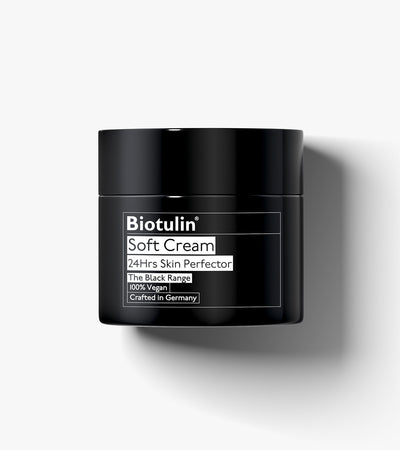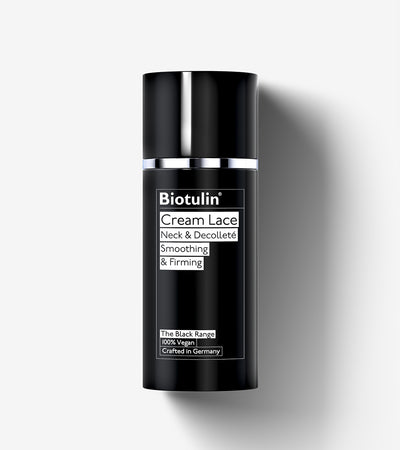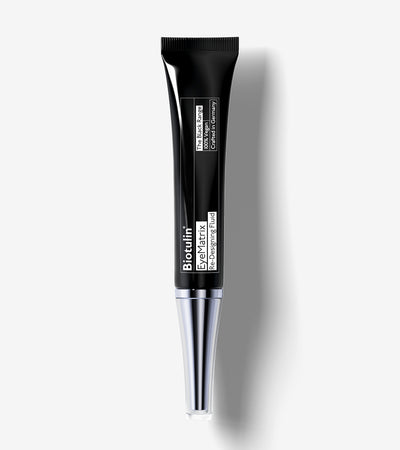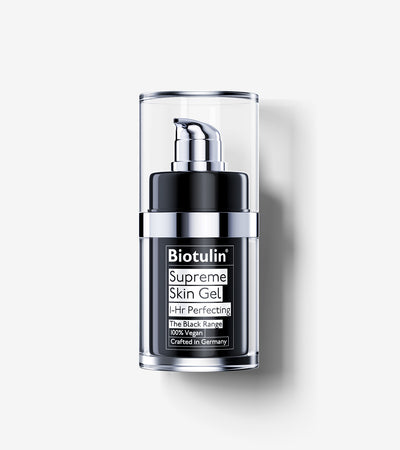Overview/Definition
Ascorbyl palmitate is a form of vitamin C, created by combining ascorbic acid (vitamin C) and palmitic acid, a fatty acid. This combination results in a fat-soluble version of vitamin C, which is more stable and less irritating than pure vitamin C (ascorbic acid). Ascorbyl palmitate is commonly used in skincare products due to its antioxidant properties and its ability to penetrate the skin effectively. It is also used as a preservative in food and cosmetic products to extend their shelf life.
Ascorbyl palmitate is derived from corn dextrose fermentation and palm oil, making it a sustainable ingredient. It is approved for use as a food additive in various regions, including the EU, the U.S., Canada, Australia, and New Zealand, where it is designated as E304. It is also marketed as "vitamin C ester" and is used in the cosmetics and pharmaceutical industries.
One of the key advantages of ascorbyl palmitate is its stability. Unlike pure vitamin C, which can degrade quickly when exposed to light and air, ascorbyl palmitate maintains its effectiveness over a longer period. This stability makes it a popular choice for skincare formulations where longevity and consistent performance are crucial. Additionally, ascorbyl palmitate is less likely to cause skin irritation, making it suitable for those with sensitive skin.
The production of ascorbyl palmitate involves a chemical process where ascorbic acid is esterified with palmitic acid. This process can be enhanced using biocatalytic methods with enzymes like lipase B from Candida antarctica, which improves the efficiency and sustainability of the production process. The resulting compound is not only more stable but also more easily absorbed by the skin due to its fat-soluble nature.
Function in Skincare
Ascorbyl palmitate primarily functions as an antioxidant in skincare products. It helps to neutralize free radicals, which are unstable molecules that can damage skin cells and contribute to signs of aging. By scavenging these free radicals, ascorbyl palmitate protects the skin from oxidative stress, which can be caused by environmental factors such as pollution and UV radiation.
Additionally, ascorbyl palmitate plays a role in collagen synthesis. Collagen is a protein that gives skin its structure and elasticity. By stimulating collagen production, ascorbyl palmitate helps to improve skin firmness and reduce the appearance of fine lines and wrinkles. This makes it a valuable ingredient in anti-aging skincare products.
Ascorbyl palmitate also has brightening effects on the skin. It can inhibit the production of melanin, the pigment responsible for skin color. By doing so, it helps to reduce hyperpigmentation and even out skin tone, making it useful for those looking to achieve a more uniform complexion.
Skin Type Suitability
Ascorbyl palmitate is suitable for all skin types, but it is particularly beneficial for those with sensitive skin. Unlike pure vitamin C, which can be harsh and cause irritation, ascorbyl palmitate is gentler and less likely to provoke a reaction. This makes it an excellent choice for individuals who want the benefits of vitamin C without the potential side effects.
Ascorbyl palmitate is also beneficial for dry skin types. Its oil-soluble nature allows it to penetrate the skin more effectively, delivering hydration and nourishment to the deeper layers. This can help to improve skin texture and reduce dryness.
For those with oily or acne-prone skin, ascorbyl palmitate can be a good option as well. Its antioxidant properties help to protect the skin from environmental damage, which can exacerbate acne and other skin issues. Additionally, its ability to regulate sebum production can help to keep the skin balanced and reduce the likelihood of breakouts.
Benefits
Ascorbyl palmitate offers several benefits for the skin:
- Antioxidant Protection: Neutralizes free radicals to protect the skin from environmental damage.
- Collagen Synthesis: Stimulates the production of collagen, improving skin firmness and elasticity.
- Skin Brightening: Inhibits melanin production to reduce hyperpigmentation and even out skin tone.
- Hydration: Helps to keep the skin hydrated and nourished.
- Anti-Aging Effects: Reduces the appearance of fine lines and wrinkles by improving skin texture and firmness.
- Gentle on Sensitive Skin: Less likely to cause irritation compared to pure vitamin C.
Potential Side Effects or Risks
Ascorbyl palmitate is generally considered safe for most people. However, like any skincare ingredient, it can potentially cause side effects in some individuals. The most common side effects include skin irritation, redness, and itching, especially in those with very sensitive skin. These reactions are usually mild and temporary.
In rare cases, ascorbyl palmitate may cause an allergic reaction. Symptoms of an allergic reaction can include hives, difficulty breathing, and swelling of the face, lips, tongue, or throat. If you experience any of these symptoms, seek medical attention immediately.
It is also important to note that while ascorbyl palmitate is generally safe, it should be used as directed. High doses of vitamin C can cause side effects such as nausea, vomiting, and diarrhea. It's crucial to take ascorbyl palmitate as directed if you're taking it as a dietary supplement.
Usage in Skincare Products
Ascorbyl palmitate is commonly found in a variety of skincare products, including:
- Serums: Often used in vitamin C serums to provide antioxidant benefits and brighten the skin.
- Moisturizers: Incorporated into moisturizers to help hydrate and protect the skin.
- Cleansers: Used in facial cleansers to gently remove impurities and provide antioxidant protection.
- Sunscreens: Added to sunscreens to enhance their protective effects against UV damage.
The concentration of ascorbyl palmitate in skincare products can vary, but it is often used in small amounts due to its potency. Even in low concentrations, it can provide significant benefits for the skin.
How it’s used
To incorporate ascorbyl palmitate into your skincare routine, follow these best practices:
- Morning or Evening Use: Ascorbyl palmitate can be used in both morning and evening skincare routines. However, it is often recommended to use it in the morning to take advantage of its antioxidant properties throughout the day.
- Layering: Apply products containing ascorbyl palmitate after cleansing and toning. Follow with moisturizer and sunscreen.
- Consistency: Use products with ascorbyl palmitate consistently to see the best results. It may take several weeks to notice improvements in skin texture and tone.
- Patch Test: Before incorporating a new product containing ascorbyl palmitate into your routine, perform a patch test to check for any adverse reactions.
Scientific Studies/Research
Several scientific studies have demonstrated the efficacy of ascorbyl palmitate in skincare. Research has shown that ascorbyl palmitate can penetrate the skin and deliver antioxidant benefits, helping to protect the skin from environmental damage. Additionally, studies have found that ascorbyl palmitate can stimulate collagen production and reduce the appearance of fine lines and wrinkles.
However, it is important to note that while ascorbyl palmitate has been shown to have antioxidant and anti-aging benefits, more research is needed to fully understand its long-term effects and optimal usage in skincare formulations.
Other Names/Synonyms
Ascorbyl palmitate is also known by several other names, including:
- Palmitoyl L-ascorbic acid
- Ascorbyl 6-palmitate
- Ascorbic palmitate
- 6-O-Palmitoyl-L-ascorbic acid
- L-Ascorbic acid 6-hexadecanoate
- Vitamin C palmitate
- 6-Hexadecanoate L-ascorbic acid
- 6-O-Palmitoylascorbic acid
Sustainability/Environmental Impact
Ascorbyl palmitate is generally considered to be a sustainable ingredient. It is derived from natural sources such as corn dextrose fermentation and palm oil, which are renewable resources. Additionally, the production process for ascorbyl palmitate can be optimized using biocatalytic methods, which reduce the environmental impact compared to traditional chemical synthesis.
However, it is important to note that the sustainability of ascorbyl palmitate can depend on the specific practices of the manufacturers. Some companies may prioritize sustainable and ethical sourcing of ingredients, while others may not. It is always a good idea to research the specific brands and products you are considering to ensure they align with your values.
Fun Facts (Optional)
Ascorbyl palmitate has been used in the food industry as an antioxidant preservative for decades. Its ability to extend the shelf life of foods makes it a valuable ingredient in various food products, including vegetable oils and potato chips.
Interestingly, ascorbyl palmitate was first commercially utilized in the 1960s as an antioxidant in the food and beverage as well as pharmaceutical sectors. Its use has since expanded to the cosmetics industry, where it is now a popular ingredient in skincare products.
Sources/References
For more detailed information, you can refer to the following sources:
- Incidecoder - Explanation and Products containing Ascorbyl Palmitate
- SkinTrends - Benefits and Uses of Ascorbyl Palmitate
- Enclaire - Stable Vitamin C Derivative with Remarkable Benefits
- EWG Skin Deep - Ingredient Information and Safety Ratings





